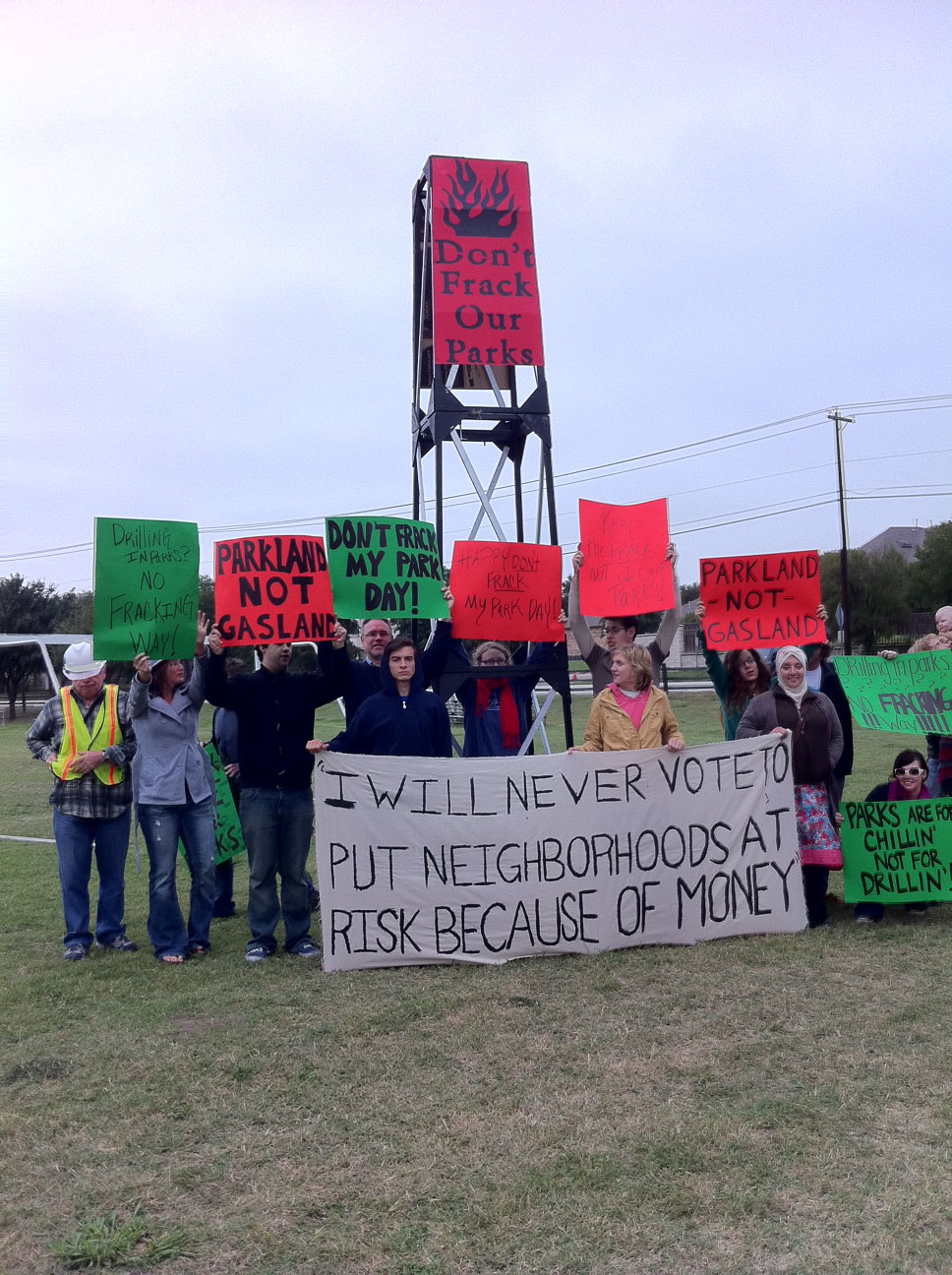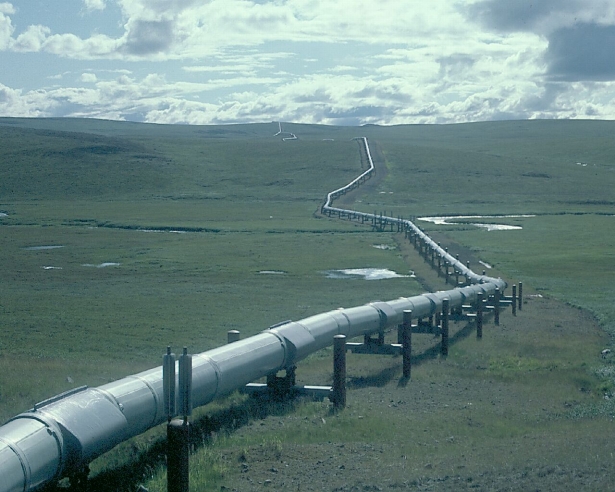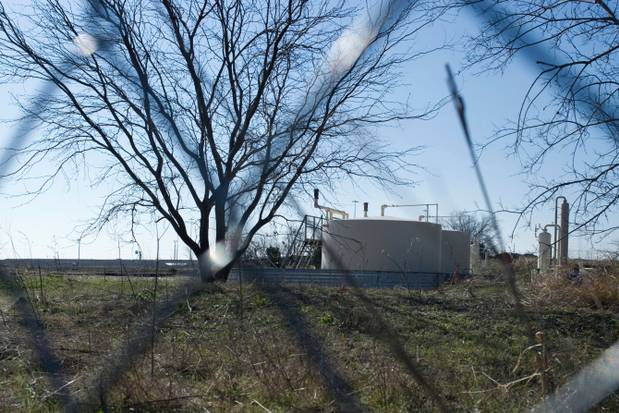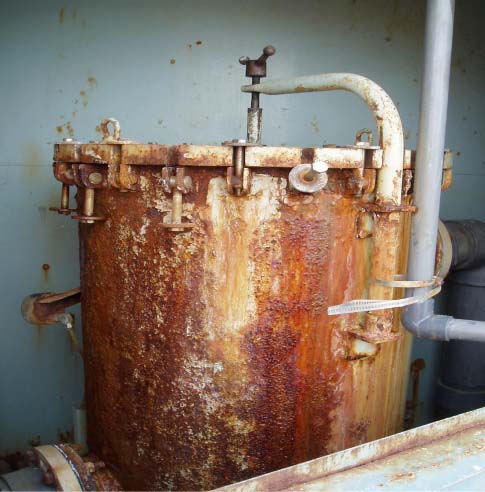Uncategorized
DMN Writer Opposes Gas Permits, Irving Meeting Opens Up New Front
 Two things happened last night in regards to the Dallas Drilling Scandal and how it plays out this week in front of the City Plan Commission for a second, "reconsidered" vote On Thursday.
Two things happened last night in regards to the Dallas Drilling Scandal and how it plays out this week in front of the City Plan Commission for a second, "reconsidered" vote On Thursday.
Sharon Grigsby, a long-time member of the of the Dallas Morning News editorial staff, took to the paper's online opinion pages and offered up a critique of why she'd vote to deny Trinity East their gas permits,
Here’s my list of why our newspaper should say no to the Trinity East plan.
1. City ordinance prohibits surface drilling in parkland because the city has determined that open spaces are environmentally important and a necessary component. All too often, the city’s history has been to under-invest in open spaces or to compromise them when a deal came along.
2. The fact that City Manager Mary Suhm told the council “no drilling in parkland” while in the same time period signing a letter saying she’d help Trinity East push forward on the parkland drilling plan may not bother the city council, but it makes for a sketchy deal.
3. If #2 isn’t taint enough, the fact that a coveted piece of parkland mysteriously showed up in the final lease further taints the deal.
4. As Trinity East’s plans rolled out to the Plan Commission, we learned of a number of environmental question marks. The one that is the most troublesome involves emissions from the proposed gas processing unit. The only thing that’s clear regarding these emissions is that no answers will be forthcoming anytime soon. Given all the fog that has pervaded this deal since December, the city’s credibility is not good — and makes it difficult to just turn our back on environmental questions.
5. Finally, the city has cited the large youth soccer fields (under development) as a reason NOT to approve other heavy industrial uses in the area. Thus, we have pause about the gas-processing unit being located so close to the fields. The city and Trinity East likely would argue that the drilling operation is different from the uses that have been denied. However, given the items in #2 and #3 above, it’s hard to trust City Hall on this deal.
6. I’m just left feeling completely squishy that so little was known about the Trinity East plan until just a couple of months ago, when documents began leaking out. The fact is that Trinity East had never really given much detail — and the city seemed just fine with that.
We'll see if her colleagues have the same common sense Ms. Grigsby has in the next 48 hours, when the paper is expected to take its latest position. To its credit, the DMN is asking very pointed questions about the Drilling Scandal and City Manager Mary Suhm in its City Council questionnaire.
Also last night – for the first time, Irving residents met to speak up about their displeasure in being downwind of all three Dallas gas sites, including the large refinery/compressor station that will become Dallas' 10th largest air polluter the moment it comes online. Approximately 60 people showed up at a hastily called City of Irving town hall meeting at the North Hills Prep School on Royal Lane hosted by Irving City Council Rose Cannaday.
There was a unanimous opposition to the permits and many participants said they were planning to attend up at Thursday's City Plan Commission meeting at Dallas City Hall to voice their concerns. North Hills Prep is directly northwest, from all three sites, and more than once, parents said they planned to get more involved. Residents urged the Irving City Council to take an official stand against the permits, as well as recruit their state elected officials to help.
So, expect a load of angry Irving residents on Thursday. Won't you come and join them? 1:00 pm, 6th Floor, Dallas City Hall. We need you there.
The Obama Administration Gives and Takes on Climate Change Regs
 First the good news. In looking for non-legislative ways to combat global warming, the Obama Administration has apparently decided to use Nixon-era requirements originally meant to force federal agencies to evaluate their impacts on soil, water and air pollution, to now include climate effects. According to this Bloomberg piece, industry isn't taking the news very well:
First the good news. In looking for non-legislative ways to combat global warming, the Obama Administration has apparently decided to use Nixon-era requirements originally meant to force federal agencies to evaluate their impacts on soil, water and air pollution, to now include climate effects. According to this Bloomberg piece, industry isn't taking the news very well:
“It’s got us very freaked out,” said Ross Eisenberg, vice president of the National Association of Manufacturers, a Washington-based group that represents 11,000 companies such as Exxon Mobil Corp. (XOM) and Southern Co. (SO) The standards, which constitute guidance for agencies and not new regulations, are set to be issued in the coming weeks, according to lawyers briefed by administration officials.
Any federal permit or regulated activity, not just administered by the EPA, but any federal department, including the Army Corp of Engineers, the Armed Forces, the Veterans Administration, the Energy Department and so on, would be affected. Full life-cycle environmental impacts would have to take into account the project's or permitted activity's impact on climate change. This could mean delays for projects ranging from the Keystone Pipeline to new Liquefied Natural Gas export facilities on the Texas coast.
The little-known White House Council on Environmental Quality is expected to issue the new standards within weeks, which derive their authority from the 1970 National Environmental Policy Act.
The new standards will be “a major shakeup in how agencies conduct NEPA” reviews, said Brendan Cummings, senior counsel for the Center for Biological Diversity in San Francisco.
The White House is looking at requiring consideration of both the increase in greenhouse gases and a project’s vulnerability to flooding, drought or other extreme weather that might result from global warming, according to an initial proposal it issued in 2010. Those full reports would be required for projects with 25,000 metric tons of carbon dioxide equivalent emissions or more per year, the equivalent of burning about 100 rail cars of coal.
Such a strategy would allow the Administration to avoid canceling any projects outright. Rather it would probably force the most contentious ones into court where it would be a battle of attrition. But it would introduce climate change as a legitimate yardstick for assessing uniform federal compliance with the law.
What the Administration giveth, it taketh away. Most followers expected the first major action on climate change after the 2012 election to be new greenhouse regulations for power plants. They've been widely anticipated by environmentalists for months as one of the most profound ways to affect rising greenhouse gas emissions – 40% of the nation's CO2 comes from power plants. But now there's trouble:
Last year, the EPA proposed the first-ever greenhouse gas standard for new power plants, which would require any new power plant to emit no more than 1,000 pounds of carbon dioxide per megawatt hour of electricity produced. The agency is supposed to finalize the rule by April 13 but is likely to miss that deadline, and officials are discussing with the White House how they might modify the proposal in order to ensure it can survive a legal challenge.
It seems lawyers are recommending separating the standard out into two categories – one for coal-fired power plants and one for gas plants – to better protect against lawsuit threats that claim the tough emission limits are impossible for any coal plant to meet. But doing so will indefinitely delay the limits and that will likely cause environmental groups to sue once the EPA misses the April 13th deadline.
David Doniger, a senior attorney at the Natural Resources Defense Council and director of the group’s climate and clean air program, said the key question for environmental advocates is how long the administration would postpone the rule.
“It’s critical to get this standard out without delay and get onto the standards for existing sources,” Doniger said. “The deadline is coming, and if the deadline isn’t met they should expect groups like ours will take legal action to meet their responsibility.”
News of any delay will likely follow the announcement of the NEPA standards going into effect so the sting isn't quit so acute. Stay tuned.
Come and Put a Stake Through the Heart of a Scandal: Dallas Drilling Vote Scheduled Next Thursday, 21st
 Today the Dallas city secretary's office published the agenda for next Thursday's City Plan Commission meeting. It includes a vote on the three controversial Trinity East gas drilling and production sites – the Luna Vista/LB Houston golf course site on park land and in the Trinity River flood plain, the Gun Club site on park land and in the flood plain, and the large refinery and compressor station near the Elm Fork Athletic Complex.
Today the Dallas city secretary's office published the agenda for next Thursday's City Plan Commission meeting. It includes a vote on the three controversial Trinity East gas drilling and production sites – the Luna Vista/LB Houston golf course site on park land and in the Trinity River flood plain, the Gun Club site on park land and in the flood plain, and the large refinery and compressor station near the Elm Fork Athletic Complex.
Opponents will once again be gathering at 1pm next Thursday, March 21st, on the 6th floor of Dallas City Hall to hold a press conference immediately before the start of the CPC meeting.
This March vote was scheduled after the short-circuited February 7th Commission hearing, when members of the CPC requested that the City Council take action to change city policy to make the permits legal – that is, to allow drilling in park land and the flood plain. However, the Council hasn't taken any action on these items. Drilling in parks and in the flood plain is still against city policy and so, these permits are still illegal. Voting for their approval would be a disastrous precedent. But the vote will be very close. That's why we need you there again next Thursday.
Many of you have seen how members of the Dallas City Council responded to this Drilling Scandal when an unprecedented cross-examination of the City Manager took place at a late February Council meeting – most rolled up into a ball and wanted the whole thing to go away, others were anxious to get on with drilling. Only three Council members spoke out against the last five years of secret agreements, lies and misrepresentation about these permits by city staff.
That's why these Trinity East permits must be stopped at the Plan Commission. If the CPC votes to deny the permits this next Thursday, that will probably be the end of things because it would take 12 votes to overturn that decision at the Council. We have the four votes necessary to prevent that from happening. If the CPC votes to approve, all it will take to issue these permits are 8 Council votes to drill, baby drill, and believe us, they have those votes. So the CPC is it.
We need your butt in a chair in the City Council Chamber at 1:30 pm next Thursday. Your presence at the last three skirmishes has kept this hot potato hot. Please don't let it cool down now, when the climatic vote is taking place. Make a commitment to show up one more time. It's important or we wouldn't ask.
To help you get ready for next Thursday, here's some helpful study aids:
* If you want a quick visual tour of these three Trinity East sites and a good summary of the fight, please check out our 4 minute video primer:
https://www.downwindersatrisk.org/2013/03/dallas-fracking-mystery-tour/
* In Friday's Dallas Morning News, North Texas naturalist Julia Bergen describes why these drilling sites are anything but "wasteland," as some City Council members have described them:
http://www.dallasnews.com/opinion/latest-columns/20130314-julia-burgen-plant-trees-not-drill-sites-in-parks.ece
* The Dallas Residents at Risk alliance has a good summary of the issues involved on the front page of their website:
http://dallasresidentsatrisk.com/
* Here's our take on the recent discovery that the City and Trinity East have already partnered-up to drill a previously-undisclosed well in Irving and the result was a casing failure that could have left thousands of gallons of chemicals underground:
All we know about these sites has come from citizens doing the due diligence that the city should have been performing. If it had not been for you showing-up five days before Christmas for the first CPC hearing, again in January for the bogus "reconsideration" vote, and again at the Commission's February abbreviated "hearing," these permits would have already been approved. There's been a human dam of residents holding back the wave of city staff and industry inertia. Don't let that dam fail now. Vote with your body. Please Be There Thursday.
Dallas Fracking Mystery Tour
Keeping Hope Alive: Keystone After the State Department Study
 All the usual suspects used the recent State Department green light on the Keystone Pipeline to more or less ratify its approval forthwith. But was the blow really fatal? Besides the intervention of fate (another "Superstorm Sandy" to invoke climate change, for example) are there regulatory or political speed bumps that might pose problems? Politico gives a rundown of four possible factors that could sidetrack the pipeline's march to the Gulf – the President's own wishes, Secretary of State Kerry's preferences, officially determining "the national interest," and rounds of public hearings and possible lawsuits.
All the usual suspects used the recent State Department green light on the Keystone Pipeline to more or less ratify its approval forthwith. But was the blow really fatal? Besides the intervention of fate (another "Superstorm Sandy" to invoke climate change, for example) are there regulatory or political speed bumps that might pose problems? Politico gives a rundown of four possible factors that could sidetrack the pipeline's march to the Gulf – the President's own wishes, Secretary of State Kerry's preferences, officially determining "the national interest," and rounds of public hearings and possible lawsuits.
If you know a Keystoner that needs a good hug, send it along and cheer them up.
DMN Report on the Irving Wells the City Of Dallas Already Shares with Trinity East
 If you can, get the dead tree editon of the story because it has maps and such that the online version doesn't (we're looking at you Robert Wilonsky). What both versions make perfectly clear is that Trinity East REALLY needs that Rawling Refinery and Compressor Station near the Elm Fork Athletic Complex to make it's network of wells in Dallas, Irving and Farmer's Branch pay off.
If you can, get the dead tree editon of the story because it has maps and such that the online version doesn't (we're looking at you Robert Wilonsky). What both versions make perfectly clear is that Trinity East REALLY needs that Rawling Refinery and Compressor Station near the Elm Fork Athletic Complex to make it's network of wells in Dallas, Irving and Farmer's Branch pay off.
Geography suggests how vital the Dallas sites might be, especially the one where Trinity East wants to build its gas processing plant. It is almost squarely in the middle of its holdings. Running right by it and near most of the leases is a rail line — a possible route for a pipeline right of way to and from the plant.
Read other accounts of this Irving chapter of the on-going Dallas Drilling Scandal at the Dallas Observer, the Dallas Residents for Responsible Drilling and our own coverage.
How Green is My Sequester
 It's large and in charge. It's the official 7-month long federal budget sequester imposed by Congress and the President on themselves some months back. You've heard about the impact to air traffic controllers, education, and the military, but how does this affect the environment stuff the feds are supposed to be doing? Mother Jones has you covered, including the effect on fracking and oil regs.
It's large and in charge. It's the official 7-month long federal budget sequester imposed by Congress and the President on themselves some months back. You've heard about the impact to air traffic controllers, education, and the military, but how does this affect the environment stuff the feds are supposed to be doing? Mother Jones has you covered, including the effect on fracking and oil regs.
Former Exide Smelter Employee: It WAS as Crappy As You Thought
 Although the Great Dallas Drilling Scandal has kept our heads spinning lately, we did mange to take note of a rather big story in a small paper that should get a lot more coverage.
Although the Great Dallas Drilling Scandal has kept our heads spinning lately, we did mange to take note of a rather big story in a small paper that should get a lot more coverage.
On February 21st, the Frisco Enterprise-Plano Star community newspaper published an article about the Exide lead smelter in Frisco using an unnamed ex-Exide employee as the sole source. The sole source's anonymity probably kept major outlets from offering the same coverage, but in this case the specifics are so compelling that we're glad the suburban chain took the chance.
Although he never gives his name, the Star says the employee "served in a managerial position at the plant." From the workday scenarios he describes he appears to have been directly involved in Exide's production line. Taken together, all of the accounts he gives the paper would seem to confirm residents' impression that the circa- mid 1960's Frisco facility was a mobile home park with a lead smelter in the middle of it.
"I guess we were probably producing $200,000 worth of product every shift — $600,000 worth of product every day," he said. "Yet [one time] we had six people working on [maintenance when the plant lost power]. We had one flashlight and one set of tools. What I needed was six flashlights and six sets of tools, but they wouldn't even give me that."
If Exide wouldn't open up the corporate wallet for flashlights, no wonder the company balked for so long about adding multi-million pollution controls to reduce lead emissions to legal levels.
And, according to the Star's source, those lead (and cadmium and arsenic) emissions could be many times what's been officially estimated by government agencies, or even citizens' own air modeling results published last year.
Power being knocked out was a particular issue, the source said, as vapors resulting from the lead-acid recycling system were no longer captured. Those vapors include lead particles, and long periods of lead exposure result in chronic lead poisoning, which in turn can result in physical defects such as kidney damage.
The former employee doesn't say how often this kind of outage occurred, but he makes it clear it wasn't infrequent. It wouldn't take too many such incidents to significantly raise the exposure level of those residents living downwind. Of course, when the state and EPA are calculating what constitutes "safe" levels of exposure to a facility's pollution, they never take into account these kind of "upsets" or accidents that can balloon the chances of inhaling harmful poisons.
Among the other allegations made by the ex-employee:
Only 1/5 of the violations Exide received "for a lack of federal compliance or unsafe working conditions" were forwarded to the Texas Commission on Environmental Quality.
Incident reports submitted to the state about violations represented "a great difference in the truth" between what was being claimed by Exide, and what really happened.
These incidents were as frequent as every other week.
Prior to the announced visits of TCEQ or EPA inspectors, "employees were paid overtime to clean the plant extensively. The same initiative was made before visits by non-plant employees, such as trips by corporate managers. Outside of those events, however, the plant was rarely cleaned."
Carbon dioxide monitors were constantly beeping, indicating dangerous CO2 levels. "The environment of operations was poisoning us."
Ah, but all of that is in the past, right? Not with Exide planning to leave over 9 million pounds of lead smelter waste behind on 90 acres in the middle of central Frisco, with another hundred acres or so outside of that donut hole" being purchased by the city for rehabilitation.
When asked if he would feel comfortable visiting the land Frisco purchased from Exide when it's remediated to federally compliant levels, the former employee said he wouldn't.
"With the way it's going right now, I'll never take my children or my dog to that area," he said. "I studied petroleum engineering and geology in college, and I know the bad stuff sinks to the bottom. I will never [go there]. It'll be nice to have it gone, but I don't know how you patch that up. You have to pull up everything, wrap it up and get it gone."
Official reaction was predictable:
"An Exide Technologies spokeswoman said the company "does not comment on unsubstantiated hearsay"…"A TCEQ spokeswoman said she could not comment on whether or not an employee signing an incident report with false information would be illegal without being told what reports are in question."
It'd be better if former employees like this came completely forward and were willing to cooperate with the EPA in exchange for immunity, but we're grateful for the peak inside Exide. It confirms not only what we already suspected about the way this company and this plant did business, it also once again confirms the way all bad acting polluters behave when it comes to hiding their real identity from the public and regulators.
Documents Show Dallas and Trinity East Partnership Extends to Previously Undisclosed Irving Well That Had Casing Failure
 Second well is waiting to open until “construction of a new production facility,” raising questions about true nature of pending refinery and compressor station near soccer field
Second well is waiting to open until “construction of a new production facility,” raising questions about true nature of pending refinery and compressor station near soccer field
(Dallas)—Scouring Texas Railroad Commission paperwork, Dallas residents have unearthed a previously undisclosed partnership between the City of Dallas and gas company Trinity East involving an gas well that experienced a cement casing failure in 2009 near the Trinity River in Irving.
According to documents submitted by the City of Dallas and Trinity East – working under the name of “Expro Energy” – Dallas became one of five lessors of a gas well located on University of Dallas property in February 2009, while Trinity East/Expro became the lessee. Sometime that summer, the cement casing of the well “parted” at approximately 2800 feet below the surface. It’s not known what environmental damage, if any, was caused by this failure so close to the Trinity River.
“We spent considerable time and money trying to correct this problem…. We expect to move back on and make another attempt to complete this well sometime in the future,” wrote Trinity East/Expro representative Jerry Eslew to the RRC in February of 2010.
Cement casing is installed around the drill pipe in order to form a barrier blocking methane, brackish water, or drilling chemicals from migrating up to contaminate drinking water aquifers above the well. But the cement doesn’t go all the way down the well itself, and errors, mishaps or geological traps can leave channels running through the cement.
Despite that incident, Dallas remains linked to Trinity East/Expro in Irving as one of 26 lessors to another well permit in the same area at the University of Dallas that got approved in May of 2010. However, that well has been reported producing almost no gas.
Trinity East is in the middle of a hard-fought battle to get approval of three gas drilling and production permits at sites along the Trinity River floodplain in Northwest Dallas, including two that are located in City of Dallas park land. On February 7th, the Dallas Observer published a “secret agreement” signed by Dallas City Manager Mary Suhm in 2008 that pledged city staff support to get those permits approved.
Citizens found indications that Trinity East/Expro may be waiting to open at least one gas well in Irving until the City of Dallas approves the permit of the company’s proposed “Luna Vista Processing Plant,” located a short distance away.
“The subject well (UD LEASE, WELL NO. 1-H) is currently closed in (sic) waiting on a gas pipeline prior to stimulation and construction of a production facility,” according to a February 29th, 2009 letter from Trinity East/Expro to the Railroad Commission.
Trinity East representatives have repeatedly said that the refinery and compressor station, just 600 feet west the City’s giant Elm Fork Athletic Complex, would only take gas from the three city of Dallas well leases currently under consideration for permitting by the City Council. But the company owns wells in Farmers Branch as well as the ones in Irving, and its representatives stated in an interview with the Dallas Observer that its “master plan” depends on Dallas being a hub.
Now neighborhood and environmental groups think they know what that means – a nexus of pipelines converging on a refinery operation and compressor station that keeps growing as more and more wells are connected to it, including at least one that’s already partially owned by the City of Dallas.
“What citizens have uncovered shows there’s a much broader and deeper relationship between Trinity East and the City of Dallas than anyone at City Hall has admitted up to now. This news points to a real conflict of interest between Dallas the gas well operator, and Dallas the municipal regulator,” said Jim Schermbeck of the local clean air group Downwinders at Risk, one of the organizations involved in the Dallas Residents at Risk alliance whose members combed the online and regional files of the Railroad Commission to obtain the documents.
Included in the packet of new-found information about the Irving wells released by the alliance today was a list of questions it says should be posed by Dallas City Council members to the City Manager as part of her scheduled Wednesday briefing to the Council on the Trinity East permits.
They include inquires about whether the Council was notified by the City Manager of the Irving leases with Trinity East/Expro, whether any royalties have been paid to the City by the company, and what the City knows about any environmental impact of the cement casing failure near the Trinity River.
“Today’s disclosures raise many new questions that should be answered by the City Manager, in addition to putting the recent actions of the city on behalf of these permits in context,” said Schermbeck. “
In particular, he thought the City Manager should be held accountable for withholding information about the City’s partnership in a Trinity East well, in addition to the 2009 casing failure, at a time when the City of Dallas is considering approving Trinity East permits for new gas well sites.
“It’s tantamount to a judge not disclosing that he owns a business with the defendant whose case he’s hearing.”
WHO: “Mounting Evidence” Endocrine Disrupting Chemicals Harming Human Health
 On Tuesday, and international team of of 16 scientists from 10 nations released a new report that concludes evidence linking hormone-mimicking chemicals to human health problems has grown stronger over the past decade, becoming a "global threat" that should be addressed.
On Tuesday, and international team of of 16 scientists from 10 nations released a new report that concludes evidence linking hormone-mimicking chemicals to human health problems has grown stronger over the past decade, becoming a "global threat" that should be addressed.
A joint effort by the World Health Organization and the United Nations Environment Program, the report is meant to give policymakers the latest information on chemicals that seem to interfere with the normal development of hormones in people and wildlife. It represents a significant change from a previous 2002 report that called such evidence weak.
The panel found that endocrine-related diseases and disorders are on the rise. There is now “emerging evidence for adverse reproductive outcomes” and “mounting evidence" for effects on thyroids, brains and metabolism, the report summary says.
Besides everyday consumer exposure through packaging, cosmetics, and food, local DFW industrial sources for endocrine disrupting chemicals include combustion sources of any kind, waste-burning, oil and gas production, and plastics manufacturing. In fact, it's the ubiquity of the pollutants that makes it hard to tell which exposure can have what health effect.
One problem vexing those who study endocrine-disrupting chemicals is the vast number of them – about 800 are known – and how they may interact with one another. They’re in a variety of goods – such as pesticides, flame retardants, plastics, cosmetics and canned foods – and research has only touched the “tip of the iceberg,” according to the report.
“The vast majority of chemicals in current commercial use have not been tested at all,” the authors wrote in the summary.
“We seem to be accepting as a society that it’s acceptable to load up our next generation with chemicals in an unregulated manner and hope they’re not bad,” said Thomas Zoeller, a professor at the University of Massachusetts, Amherst and a co-author of the report. “We need to change that entire culture.”
